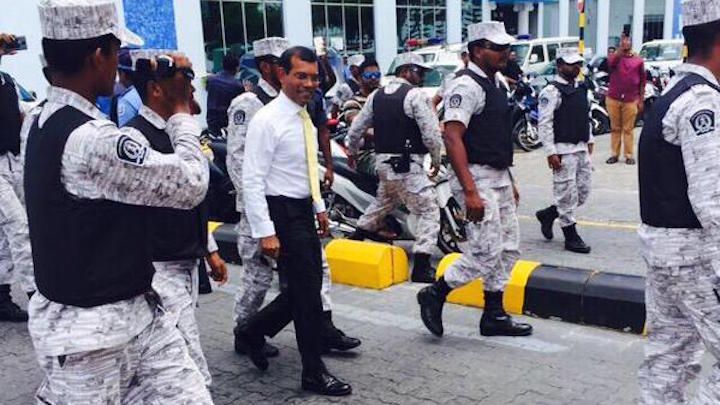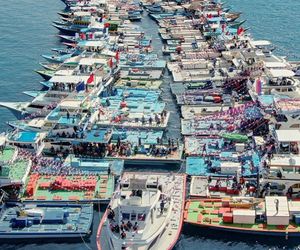Nasheed petitions lower courts to secure release
After appealing former President Mohamed Nasheed’s 13-year sentence at the Supreme Court this week, the opposition leader’s lawyers are now petitioning the lower courts to secure his release from prison. They are “seeking a solution through the judiciary” as urged by President Abdulla Yameen.

22 Dec 2015, 9:00 AM
After appealing former President Mohamed Nasheed’s 13-year sentence at the Supreme Court this week, the opposition leader’s lawyers are now petitioning the lower courts to secure his release from prison.
Separate cases have been filed today at the High Court and civil court. Lawyers have asked the civil court to order the home ministry and the Maldives Correctional Services to release Nasheed in light of a UN human rights panel judgment declaring his imprisonment illegal.
The High Court case involves an unresolved dispute over Nasheed’s transfer back to jail in August after two months under house arrest.
Nasheed’s lawyer Hisaan Hussain told the press today that the legal team is “seeking a solution through the judiciary” as urged by President Abdulla Yameen.
Become a member
Get full access to our archive and personalise your experience.
Already a member?
Discussion
No comments yet. Be the first to share your thoughts!
No comments yet. Be the first to join the conversation!
Join the Conversation
Sign in to share your thoughts under an alias and take part in the discussion. Independent journalism thrives on open, respectful debate — your voice matters.




